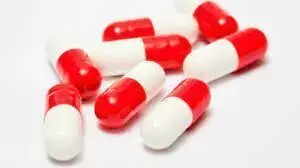- Home
- Medical news & Guidelines
- Anesthesiology
- Cardiology and CTVS
- Critical Care
- Dentistry
- Dermatology
- Diabetes and Endocrinology
- ENT
- Gastroenterology
- Medicine
- Nephrology
- Neurology
- Obstretics-Gynaecology
- Oncology
- Ophthalmology
- Orthopaedics
- Pediatrics-Neonatology
- Psychiatry
- Pulmonology
- Radiology
- Surgery
- Urology
- Laboratory Medicine
- Diet
- Nursing
- Paramedical
- Physiotherapy
- Health news
- Fact Check
- Bone Health Fact Check
- Brain Health Fact Check
- Cancer Related Fact Check
- Child Care Fact Check
- Dental and oral health fact check
- Diabetes and metabolic health fact check
- Diet and Nutrition Fact Check
- Eye and ENT Care Fact Check
- Fitness fact check
- Gut health fact check
- Heart health fact check
- Kidney health fact check
- Medical education fact check
- Men's health fact check
- Respiratory fact check
- Skin and hair care fact check
- Vaccine and Immunization fact check
- Women's health fact check
- AYUSH
- State News
- Andaman and Nicobar Islands
- Andhra Pradesh
- Arunachal Pradesh
- Assam
- Bihar
- Chandigarh
- Chattisgarh
- Dadra and Nagar Haveli
- Daman and Diu
- Delhi
- Goa
- Gujarat
- Haryana
- Himachal Pradesh
- Jammu & Kashmir
- Jharkhand
- Karnataka
- Kerala
- Ladakh
- Lakshadweep
- Madhya Pradesh
- Maharashtra
- Manipur
- Meghalaya
- Mizoram
- Nagaland
- Odisha
- Puducherry
- Punjab
- Rajasthan
- Sikkim
- Tamil Nadu
- Telangana
- Tripura
- Uttar Pradesh
- Uttrakhand
- West Bengal
- Medical Education
- Industry
Zuranolone intake improves symptoms among patients with depression

In patients with major depressive disorder, zuranolone at 50 mg/day caused a significant improvement with a short time to effect, says an article published in the American Journal of Psychiatry.
Anita Clayton and colleagues conducted a study in which they evaluated the effectiveness and safety of a 14-day course of once-daily zuranolone 50 mg, an investigational oral positive allosteric modulator of the gama-aminobutyric acid type A (GABAA) receptor, for the treatment of major depressive disorder.
In this randomised, double-blind, placebo-controlled experiment, patients with severe major depressive disorder between the ages of 18 and 64 were included. For 14 days, patients self-administered 50 mg of zuranolone or a placebo. The 17-item Hamilton Depression Rating Scale (HAM-D) total score change from baseline at day 15 was the primary objective. The frequency of adverse events was used to evaluate safety and tolerability.
The key findings of this study were:
1. The full analysis set consisted of 534 participants out of the 543 randomised patients (266 in the zuranolone group and 268 in the placebo group).
2. At day 15, patients in the zuranolone group showed a statistically significant reduction in depression symptoms when compared to those in the placebo group.
3. By day 3, there were numerically greater reductions in depressive symptoms for zuranolone compared to placebo (least squares mean change from baseline HAM-D score, 9.8 vs. 6.8).
4. These improvements persisted through day 42, with the difference remaining nominally significant through day 12.
5. Serious side effects occurred in two individuals in each group, and nine patients in the zuranolone group and four in the placebo group stopped taking their medications as a result.
In comparison to previously examined lower dosages, zarianolone was generally well tolerated, with no new safety findings. These results back up zuranolone's potential for treating people with major depressive illness.
Reference:
Clayton, A. H., Lasser, R., Parikh, S. V., Iosifescu, D. V., Jung, J., Kotecha, M., Forrestal, F., Jonas, J., Kanes, S. J., & Doherty, J. (2023). Zuranolone for the Treatment of Adults With Major Depressive Disorder: A Randomized, Placebo‐Controlled Phase 3 Trial. In American Journal of Psychiatry. American Psychiatric Association Publishing. https://doi.org/10.1176/appi.ajp.20220459
Neuroscience Masters graduate
Jacinthlyn Sylvia, a Neuroscience Master's graduate from Chennai has worked extensively in deciphering the neurobiology of cognition and motor control in aging. She also has spread-out exposure to Neurosurgery from her Bachelor’s. She is currently involved in active Neuro-Oncology research. She is an upcoming neuroscientist with a fiery passion for writing. Her news cover at Medical Dialogues feature recent discoveries and updates from the healthcare and biomedical research fields. She can be reached at editorial@medicaldialogues.in
Dr Kamal Kant Kohli-MBBS, DTCD- a chest specialist with more than 30 years of practice and a flair for writing clinical articles, Dr Kamal Kant Kohli joined Medical Dialogues as a Chief Editor of Medical News. Besides writing articles, as an editor, he proofreads and verifies all the medical content published on Medical Dialogues including those coming from journals, studies,medical conferences,guidelines etc. Email: drkohli@medicaldialogues.in. Contact no. 011-43720751


